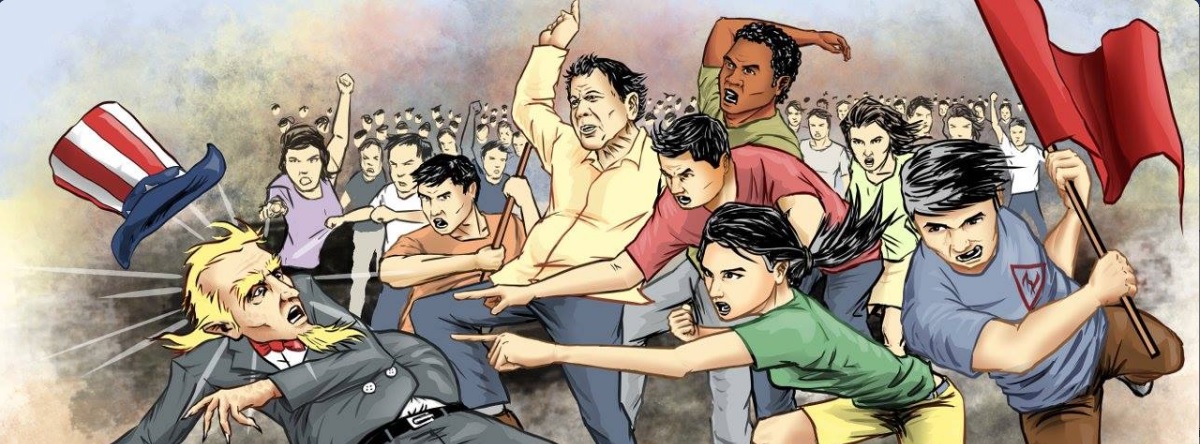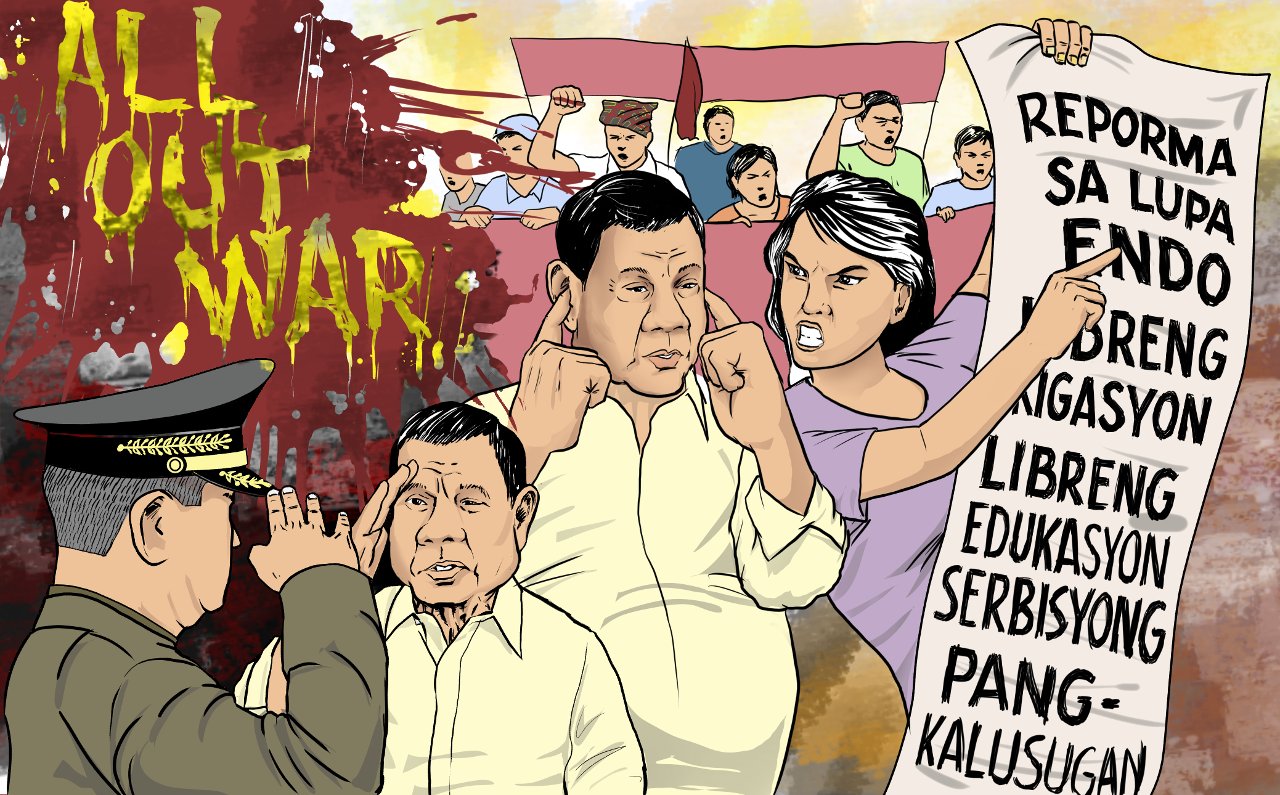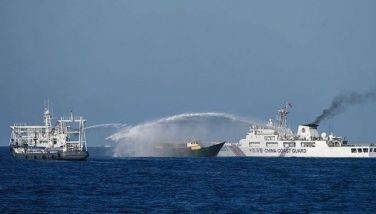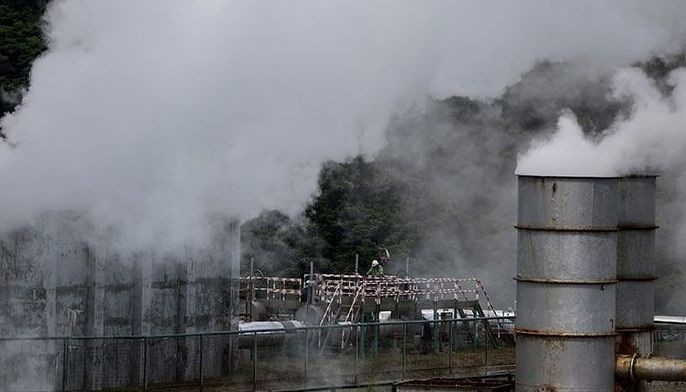A year of fighting and talking
July 7, 2017 | 7:03am

Peace talks with the Communist Party of the Philippines and the New People’s Army through the National Democratic Front of the Philippines resumed in August 2016, three years after they were shelved.
This piece is a part of a news analysis series on the first 12 months of the Duterte administration.
A year into President Rodrigo Duterte’s administration, the country is closer to achieving peace with communist rebels in that both sides are at least talking again.
Peace talks with the Communist Party of the Philippines and the New People’s Army through the National Democratic Front of the Philippines (NDF or NDFP) resumed in August 2016, three years after they were shelved.
This was preceded by the appointment of NDF nominees to the Duterte Cabinet and the release of key NDF figures—including suspected NPA members—so they could participate in the negotiations.
The resumption of talks, initiated by the self-described first socialist Philippine president, brought the hope of ending the decades-long CPP-led revolution.
“For the first time in the history of the Philippines, a president has emerged by denouncing the abuses of the oligarchy and the folly of servility to foreign powers and by using street language and methods of the mass movement,” CPP founder and NDF political consultant Jose Ma. Sison said of his former student at the Lyceum of the Philippines as negotiations began in 2016.

Detail from "Ang Bayan," the official organ of the Communist Party of the Philippines.
Talks began to bog down in early 2017, however, as the NPA announced the cancellation of a ceasefire over what it said was the occupation of hundreds of rebel-held barrios by security forces and the failure to release more political prisoners as they said had been promised.
The release of political prisoners had been a precondition for returning to the peace table as early as 2015, with then NDF panel chair Luis Jalandoni saying that "the priority (for release) is on those who are sick, elderly, and those who have been imprisoned for four years or more."
It remains so, with Sison saying in June that the government "has steadily backed out of its promise to release all political prisoners and Duterte himself has publicly expressed regrets for having released from prison a mere 19 of them in August last year." The president said that he had already conceded too much to the rebels.
As of May 2017, rights group Karapatan said 402 political prisoners are still in prison, with 39 of them arrested by the current administration. Since then, 10 more political prisoners have been granted a presidential pardon and released.
Duterte has countered that a ceasefire binding on both parties will lead to the release of all prisoners.
The NPA’s cancellation of the ceasefire—and attacks on government units before the truce was scheduled to lapse—led to a resumption of hostilities and what Defense Secretary Delfin Lorenzana called "a talk-and-fight and fight-and-talk situation" on July 5 when he confirmed that NPA guerillas in Mindanao were valid targets for security forces.
Duterte, also in July, expressed exasperation at what he sees as mixed signals from the communists: "You directed your soldiers to fight, to engage us, government. Later on, you said you will fight alongside government. Then you said you will fight with us again."
This was a far cry from the president who was convinced in 2016 that the "Reds" would die for him in case of a plot to oust him from power.
But the government has not been the most consistent in its messaging, either. In May, when the CPP threatened attacks in protest of martial law in Mindanao, which it saw as part of an all-out war against the communists, Lorenzana said the military "will not specifically target the New People’s Army."
The government initially indicated that it would accept the NPA's offer to fight Maute terrorists in Marawi but then said the communists must not set conditions, like the lifting of martial law, for helping.
Duterte himself had offered to take in members of the NPA, Moro Islamic Liberation Front and Moro National Liberation Front but later quietly withdrew the offer.
The government and the NDF also said they would halt operations in Mindanao as a confidence-building measure and so security forces could focus on defeating Islamic State-inspired local terrorist groups that have holed up in Marawi City since May.

Detail from "Ang Bayan," the official organ of the Communist Party of the Philippines.
This did not prevent clashes between the Army and the NPA in Kalinga province or guerrillas raiding a police station in Iloilo, which, the NDF reminded presidential spokesman Ernesto Abella, who condemned the raid in Maasin town as opportunistic, is not in Mindanao.
"First of all, there is no ceasefire in place between the forces of the GRP (Government of the Republic of the Philippines) and NDFP in the Visayas and elsewhere in the country. What are in place are recommendatory gestures of goodwill by both parties to refrain from carrying out offensive operations against each other’s forces in Mindanao," NDF peace panel chair Fidel Agcaoili said.
The CPP has also accused the government of launching airstrikes near communities suspected of supporting the rebels.
The party also claimed in its June 30 statement that "there are at more than 70 cases of extrajudicial killings (more than one a week), victimizing mostly activists and organizers among the peasants and national minorities."
Mutual distrust
Close to a year since talks restarted, Sison warned in a statement on the NDF website that they "are heading for the rocks, despite the strong clamor for these negotiations by the public and a broad range of peace advocates."
The CPP said that the former mayor now seems no different from previous presidents, adding he "has zero to show to buttress his claims of being a Leftist and socialist."
The party, which is pushing an agreement on socio-economic reforms to address poverty, landlessness and other root causes of the insurgency, said "the economic policies of the Duterte regime are a continuum of the neoliberal policies of the past three decades plus."
Duterte, meanwhile, has also accused the CPP-NPA-NDF of extortion through the collection of "revolutionary taxes" that he also said ended up lining the leaders’ pockets.
The Office of the Presidential Adviser on the Peace Process, meanwhile, has also warned that NPA attacks "further fuel the public’s doubt on whether it is still worthwhile to continue the peace negotiations with them."
Both sides have also accused the other of not being in full control of their forces on the ground. Both are also convinced that they can beat the other.
On July 6, President Duterte said in a speech in Bukidnon that there will be no more talks until the CPP-NPA-NDF stops collecting the so-called revolutionary taxes but it is yet unclear, as is common with many of his pronouncements, whether this is now a government policy.
Still talking despite the fighting
Despite the fits and starts of the talks, however, the Duterte administration is still ahead in its first year than the Aquino administration in its last.
Sison and Jalandoni hinted in 2015 that talks could restart before the end of Aquino's presidency, with backchannel talks supposedly underway to lead to informal talks, but these did not materialize.
If jaw-jaw is, as they say, better than war-war, then fight and talk is at least better than fight and fight.
NDF nominees in the Duterte Cabinet are still there, although their appointments have yet to be confirmed by Congress, and have been able to help bring the government back to talks after hostilities in February.
Party-list representatives supportive of the national democratic movement and the peace talks are also still members of the majority bloc at the House.
Unless talks are terminated again, both panels are eyeing a return to the table by August after informal talks this month.
Chief government peace negotiator Silvestre Bello III said the parties will "discuss mainly on the issue of socioeconomic reforms and the possible interim unilateral ceasefire" to prepare for formal submissions in Europe.
Both sides, despite their principals—the NDF peace panel considers the CPP-NPA its clients, not subordinates—continue to express a willingness to talk and iron out a ceasefire agreement and a Comprehensive Agreement on Socio-Economic Reforms that might lead to peace.
Although a government timeline to sign the CASER within six months has proven overly optimistic, government negotiator Hernani Braganza trumpeted the agreement in May as "the trigger mechanism that would lead to the discussion of constitutional reforms and an end to hostilities."
Both sides are still working on drafts of the agreement, but the NDF said its version is premised on the assumption "that Philippine society is semi-feudal and semi-colonial and thus needs genuine agrarian reform, national industrialization and a free and independent foreign trade and monetary policy for national development."
More important in the immediate term is the ceasefire that parties have agreed to, at least in theory.
Braganza said that a ceasefire will be needed for the implementation of CASER and so both parties can "talk freely and openly with minimal distraction."
He said a formal truce would also "provide breathing space, especially in the conflict-affected areas" and will allow the government to deliver basic services.
While the peace talks between the government and the communists are wrapped in uncertainty, this is still more a reason to hope than the certainty of no talks at all.
ALSO READ:
— Graphics by RP Ocampo
BrandSpace Articles
<
>
Philstar
x
- Latest
- Trending
Trending
Latest
Trending
Latest
Recommended






























